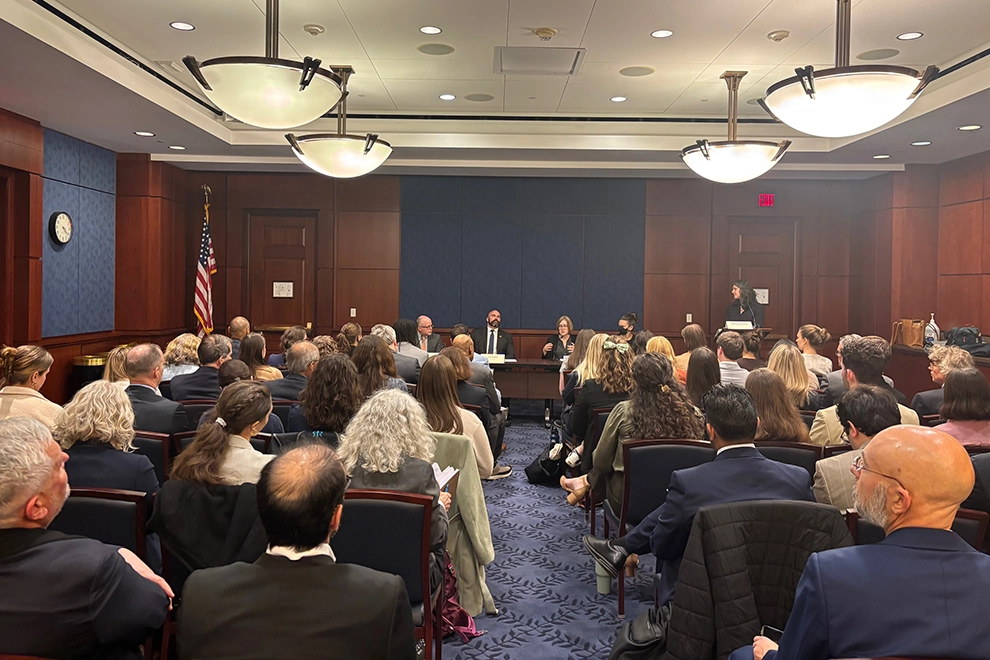On April 2nd, the Oceans Caucus Foundation and ESP Advisors co-hosted the 119th Oceans Caucus Welcome Briefing and Reception.
The briefing, The Role of Data Technology in Managing Marine Resources and Growing the Ocean Economy, featured a panel discussion on ways developments in technology have real world implications in the fields of marine management. The panel consisted of Joe Wolfel, CEO and Co-Founder, Terradepth; Krista Rasmussen, Program Director for the Natural Resource Security Program, C4ADS; Dr. Ryan Kelly, Associate Director, School of Marine & Environmental Affairs, University of Washington; and Dr. Katy Croff Bell, President and Founder, Ocean Discovery League. The panel was moderated by Kat Montgomery, Chief Operating Officer, ESP Advisors.
The discussion was wide ranging but included a focus on the important role that technology has in not only managing ocean and coastal resources, but also in expanding our understanding and ability to utilize them. Their most important partner? The US Government. Funding is always a limiting factor in ocean research and development, and having government buy-in and funding is important to the stability of research programs and attracting new funding.
Technology is a growing part of managing ocean resources, from helping governments target illegal, unregulated, and unreported fishing (IUUF) actors to measuring fish stocks with a glass of seawater using eDNA. Joel pointed out that ocean observation research is expensive, and one of the highest costs is the human workforce behind gathering data and operating machinery. Development in technology can help reduce these costs while gathering more data and reducing human error.
There are already examples of how new ocean technology is being applied to current ocean management needs. Dr. Kelly cited two examples where eDNA has helped in the stock assessment of the Pacific hake and where eDNA was used to alert the U.S. Navy on whether marine mammals were present to reduce marine mammal interaction with Navy operations. Krista pointed to a new platform that C4ADS has created called Triton that helps increase transparency around fishing vessels and their parent companies.
As Katy said, we need all actors, from government to private to academic, to play their unique roles in partnership for this to work. There is a lot of work and investment that still needs to be done to ensure America has a strong ocean economy that includes not only robust resource development, but also the strong and well-informed management structures behind it.

 Regional Headquarters
Regional Headquarters